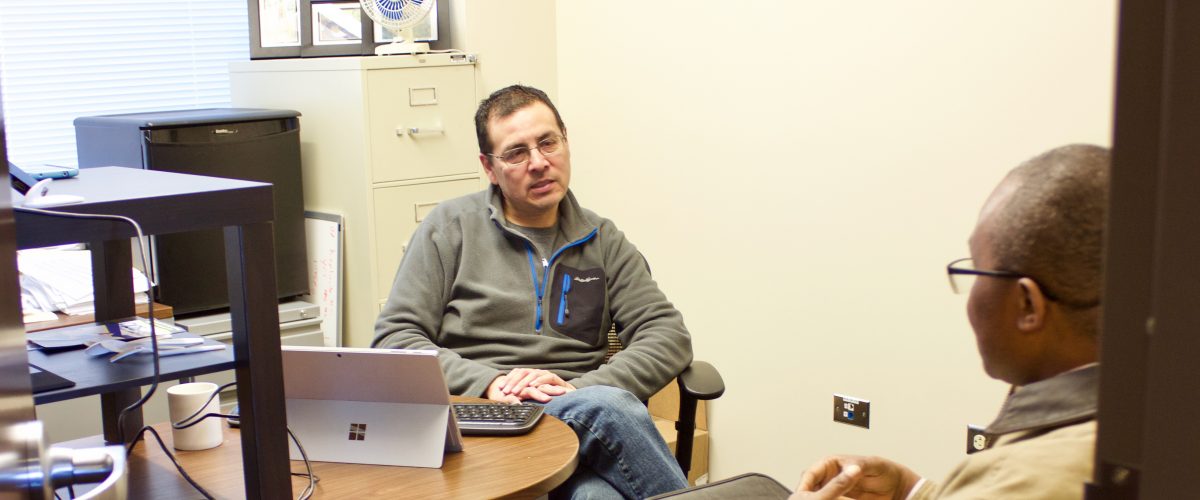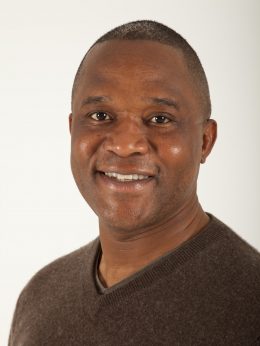
Abdul Sesay, Computer Science and Information Systems (CSIS) doctoral candidate, was recently awarded a National Science Foundation (NSF) Grant to continue his research on the impact of the use of body-worn cameras (BWC) in Colorado police departments.
The NSF Doctoral Dissertation Research Improvement Grant is a highly competitive national award that supports research that uses historical, philosophical, and social scientific methods to investigate the intellectual, material, and social facets of the scientific, technological, engineering, and mathematical (STEM) disciplines.
Dr. Ronald Ramirez, Associate Professor of Information Systems and Dr. Onook Oh, Assistant Professor of Information Systems are the CU Denver Business School faculty members involved in Abdul’s research. The team includes Dr. Keith Guzik, Associate Professor of Sociology, and Dr. Ilkyeun Ra, Associate Professor of Computer Science and Engineering, and was awarded a grant from the CU Denver Creative Research Collaborative (CRC), a campus wide initiative to foster innovative and interdisciplinary research activities to strength collaboration across academic units on the downtown campus.

Abdul’s research interest in body worn cameras began with his firsthand experience compiling reports on complaints against police officers for the city of Denver’s Office of the Independent Monitor. At that time, media coverage of high-profile shootings of civilians by police officers skyrocketed and provoked public protests across the nation. These protests amplified the calls of concerned citizens and elected officials for the use of police BWC. While the arguments for and against the use of this technology appeared quite plausible, the organizational and societal impacts require further study. That gap in knowledge is what Abdul’s research hopes to fill.
Abdul further explains, “Humans and technology have become inseparable. As such, theories of technology and organization must strive to explain how human subjects and material objects function together to drive phenomena, rather than how one influences the other. Thus, I am interested in not only the technology itself, but in understanding how the technology and officers interact with, and relate to, each other to drive organizational transformation. Such an understanding will move discourse on technology and organization from what it has been to what it is becoming.”
Abdul has presented preliminary findings from a pilot study on Colorado police departments that demonstrate the feasibility of his research at the Hawaii International Conference on System Sciences in January and the Big 12-Plus Management Information Systems (MIS) Research Symposium in April. The CRC grant partly funded these presentations, which helped the team gain national exposure. NSF grant reviewers also cited the pilot study as an important consideration in the review process.
When deciding to pursue a PhD, Abdul had several areas to choose from based on three Master’s degrees along with fifteen years of experience in private and public sector organizations. In the end, he decided on the CU Denver CSIS PhD program, as it provided a thread that tied all his interests together.
Along with the desire to improve the Denver community, his advisor’s Dr. Ramirez’s research interests contributed to Abdul’s continued success here at the school. Dr. Ramirez stated, “Abdul is a one-of-a-kind student in our PhD program. This award is a unique win for the Business School and a testament to the rising research quality of our Information Systems program.”


